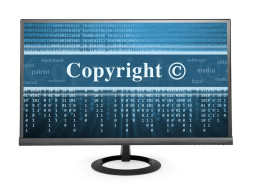The date of Jamaica’s 50th anniversary is almost upon us—as such, we believe that it is a fitting time for reflection. The Broadcasting Commission of Jamaica was founded more than 25 years ago to carry out an ambitious goal—to be a regulator that leads in the development of a dynamic electronic communications sector benefitting Jamaica and the wider region. Decades later, we can confidently state that we are well on our way to achieving this goal.
In this post, we aim to admit to our shortcomings, celebrate our achievements, and evaluate the effort we have made thus far. Neither nation nor organization can grow without taking the time to stop and assess.
The purpose of the media is to inform, entertain, and educate—but time, experience and some unfortunate situations have shown us that it cannot do so unless regulated. In a previous blog post, for example, we cited research indicating connections between content broadcast and children’s behaviour.
The Broadcasting Commission was established by the Broadcasting and Radio Re-Diffusion and Amendment Act of 1986. Prior to this, the broadcast media were regulated by the Broadcasting Authority, the functions of which have since been incorporated into the Commission. Consisting of a body of Members appointed by the Governor General after consulting with both Prime Minister and Leader of the Opposition, the Broadcasting Commission’s aims are to advise on policy and administer the broadcasting laws and regulations, to receive applications for licences and recommend suitable applicants, to monitor transmissions, to investigate complaints and to conduct relevant research.
Landmarks Achieved
Throughout the years, we have championed the achievement of a number of landmarks. Firstly, we have paved the way for the regularization of cable service. We have ensured, for example, that no person is able to operate a cable service without a licence—assisting in the stamping out of illegal operators who overcharge persons for inferior and unlawful service. Today, when a potential operator applies for a licence, he or she must give evidence of technical competency to be considered for approval. This ensures all persons throughout the island are able to access the high quality of content for which they are paying.
Additionally, the Broadcasting Commission has conducted research on the areas of Jamaica that are unable to access cable service—and we have, through calls for applications from potential providers of service to these areas, already put plans in place to ensure that these communities do not remain overlooked.
In carrying out the mandate of the Broadcasting and Radio Re-Diffusion and Amendment Act 1986, we have also assisted in the liberalization of the electronic media. Liberalization in its broadest sense describes an ‘opening up.’ The liberalization of the telecommunications sector, for example, involved the government’s auctioning off of telecommunications licenses to private bidders, and caused competitors to be introduced within the market. Liberalization therefore results in more choices available to the consumer. By formalizing the cable sector, the Broadcasting Commission made it a viable option as a business, allowing for the variety called for by subscribers.
Within the landscape of the broadcast media, liberalization becomes especially important for another crucial reason. Radio stations and television networks can sometimes be used to represent the interest of whichever persons or institutions fund them. The wider variety available to the receiver of these messages, therefore, the better. Today, the number of private and public broadcasters has rapidly grown—thanks in part to the efforts of the Broadcasting Commission.
In our next blog post, we will discuss more milestones achieved by the Broadcasting Commission, and then delve into our plans for future impact on Jamaica.
(166)







